News

Nov 15, 2022
Michael Axtell named Louis and Hedwig Sternberg Chair in Plant Biology
Michael Axtell, distinguished professor of biology at Penn State, has been named the Louis and Hedwig Sternberg Chair in Plant Biology in the Eberly College of Science.
Full Article
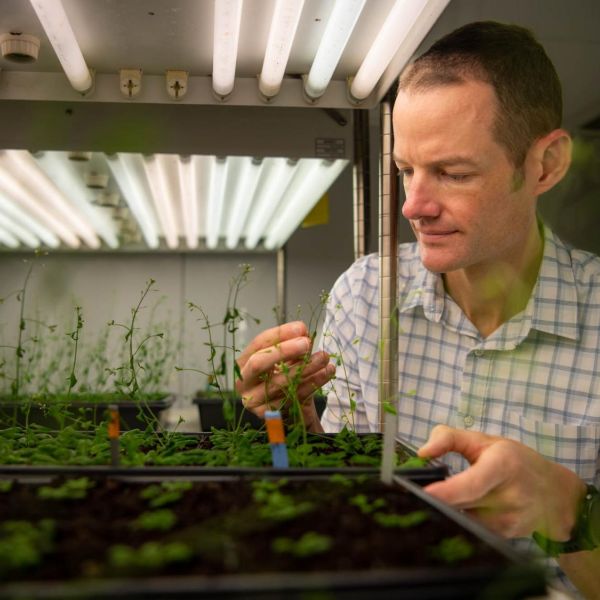
Nov 02, 2022
Scientist sees Penn State as a 'living lab' for climate action
With the University working to draw down greenhouse gas emissions and reduce its carbon footprint, plant biologist Charlie Anderson is likewise advancing the cause of a greener, more-sustainable future through research and advocacy.
Full Article
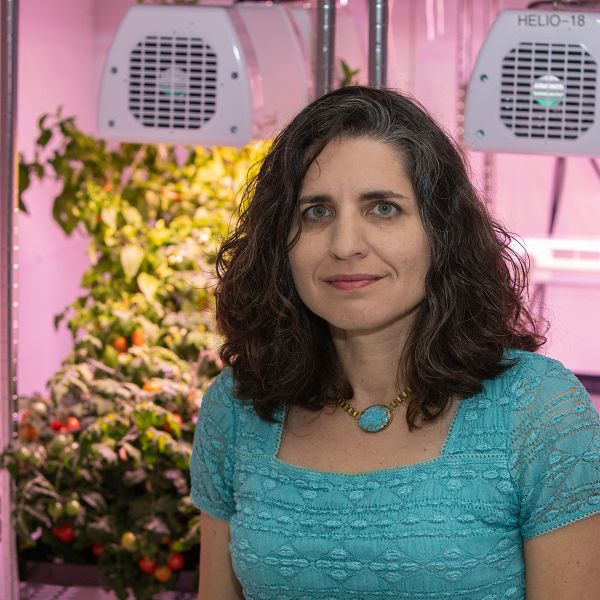
Oct 21, 2022
Penn State alum presents her NASA space garden research to current students
Scientist Gioia Massa conducts space plant biology research at NASA’s Kennedy Space Center, growing edible vegetables on the International Space Station. Massa, who earned her Ph.D. at Penn State, presented a talk about her extraordinary career.
Full Article

Sep 14, 2022
Huck graduate students elect co-chairs for new academic year
This year, HGSAC members elected two students to serve as the graduate co-advisers for the Huck Institutes for 2022-23; Plant Biology student Alenka Hafner and Bioinformatics and Genomics student Corrine Smolen.
Full Article
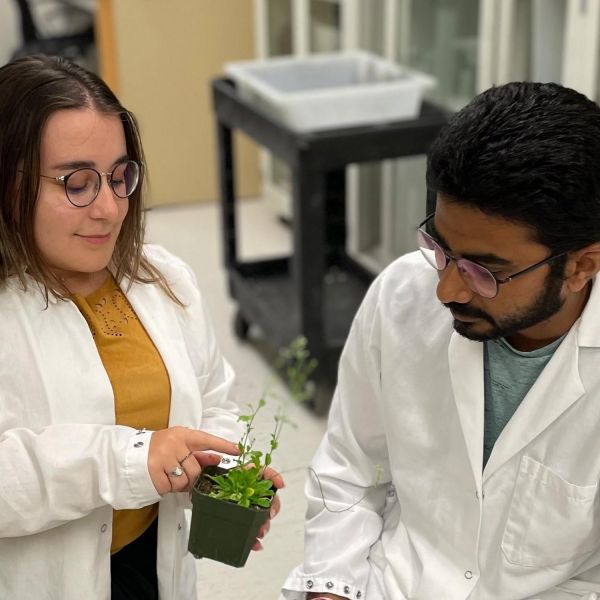
Aug 17, 2022
Plant molecular geneticists discover, and begin to crack, the epigenetic code
When plants sense environmental challenges such as drought or extended periods of extreme temperatures, they instinctively reprogram their genetic material to survive and even thrive.
Full Article

Jun 30, 2022
Jared Ali named director of the Penn State Center for Chemical Ecology
Jared Ali, Dorothy Foehr Huck and J. Lloyd Huck Chair of Chemical Ecology and associate professor of entomology in the College of Agricultural Sciences, has been named director of the Penn State Center for Chemical Ecology (CCE).
Full Article

Jun 27, 2022
Jared Ali named Huck Chair of Chemical Ecology
Jared Ali, associate professor of entomology in Penn State's College of Agricultural Sciences, has been named the Dorothy Foehr Huck and J. Lloyd Huck Chair of Chemical Ecology by the University’s Huck Institutes of the Life Sciences.
Full Article
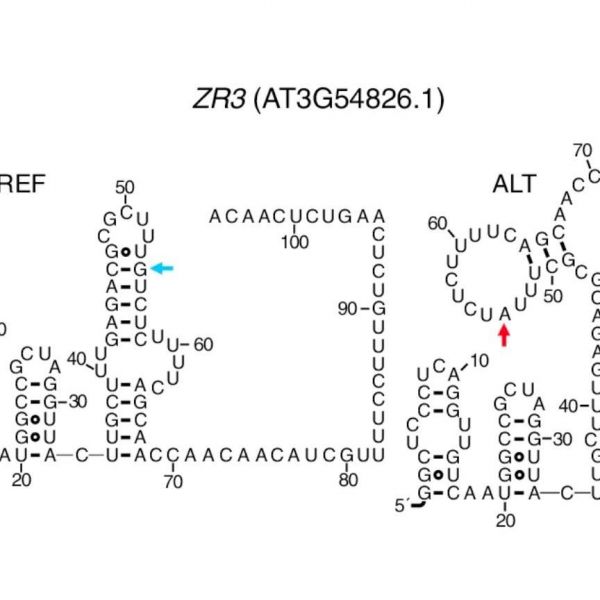
Jun 24, 2022
Climate-associated genetic switches found in plants
Genetic variants that can act as switches directing structural changes in the RNA molecules that code for proteins in plants have been experimentally validated in plants for the first time. The changes to RNA structure can affect the molecule’s stability, how it interacts with other molecules, and how efficiently it can be translated into protein — all of which can impact its function and the traits of the plant.
Full Article
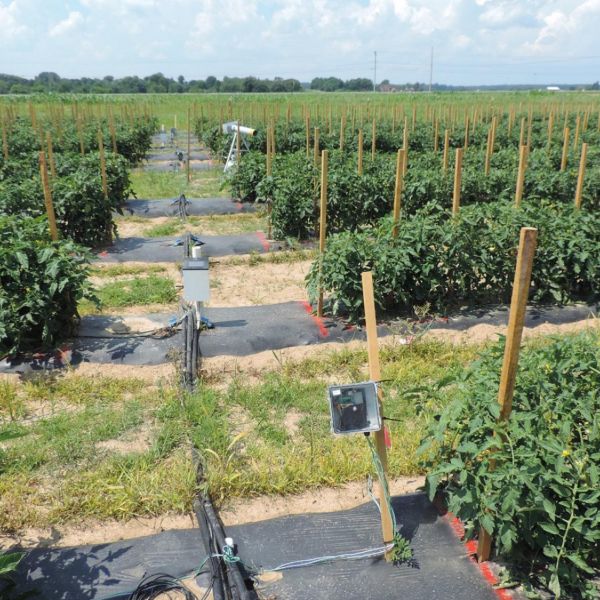
Jun 02, 2022
Internet-based precision irrigation system shows promise for fresh-market tomato
An “internet of things” — or IoT — system monitoring real-time data from soil-based sensors to activate an automated precision irrigation setup can conserve water and boost crop production, according to a team of Penn State researchers.
Full Article
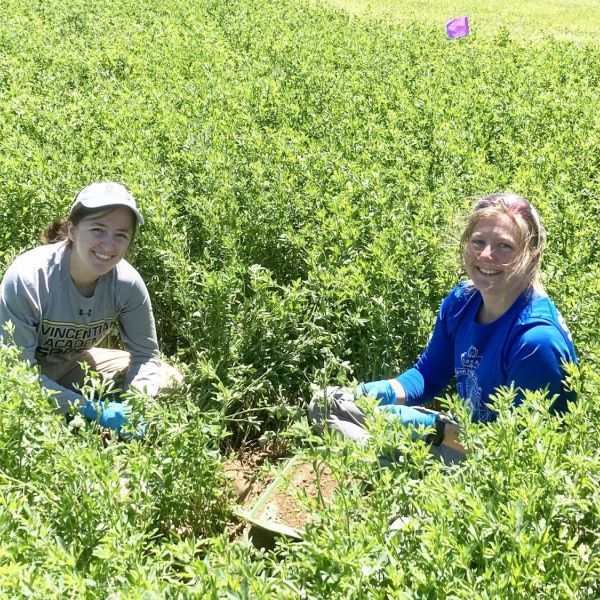
May 31, 2022
New plant science team gets grants from USDA-NIFA for research on soil microbes
An assistant professor in Penn State’s College of Agricultural Sciences has received $950,000 in two competitive grants from the U.S. Department of Agriculture to lead a team studying interactions between plants and rhizobial soil bacteria, with the long-term goal of boosting forage and crop production while reducing environmental impacts of fertilizer use.
Full Article